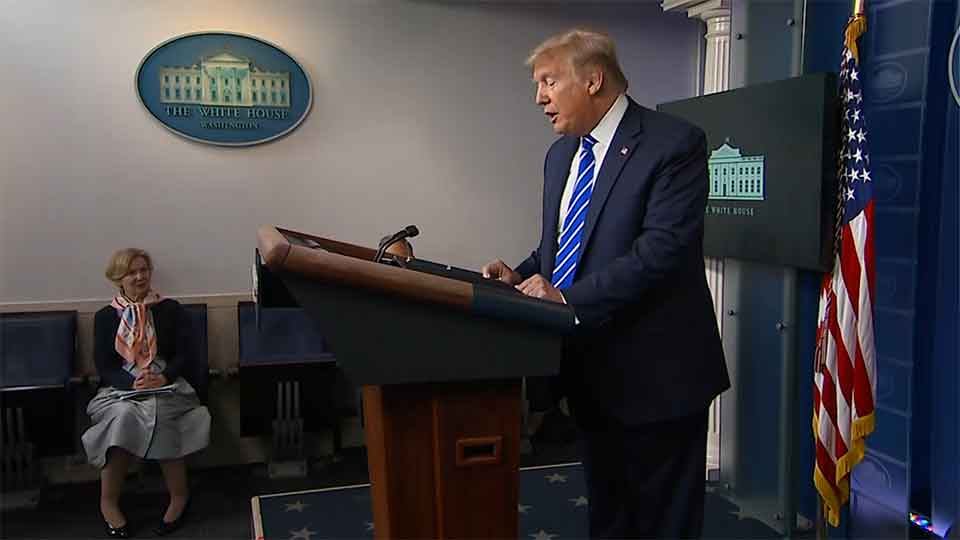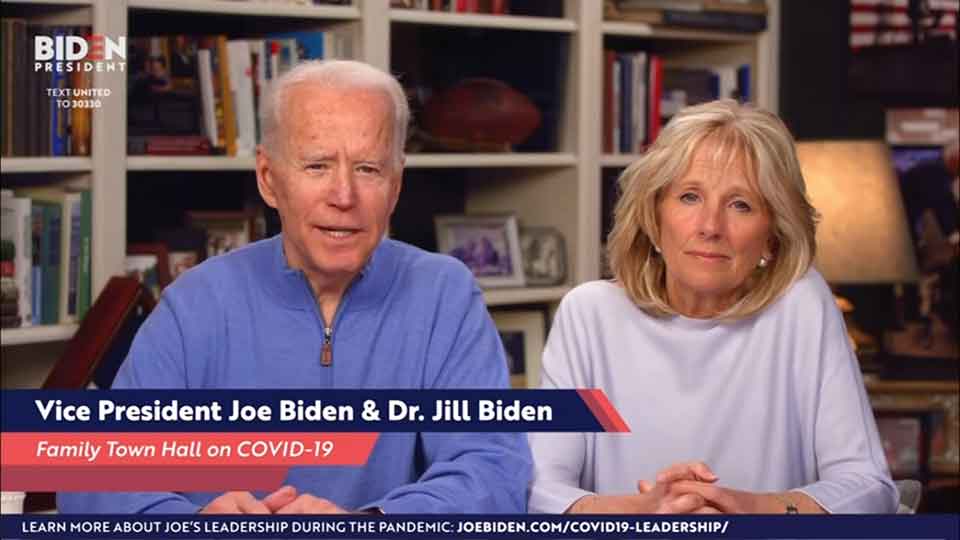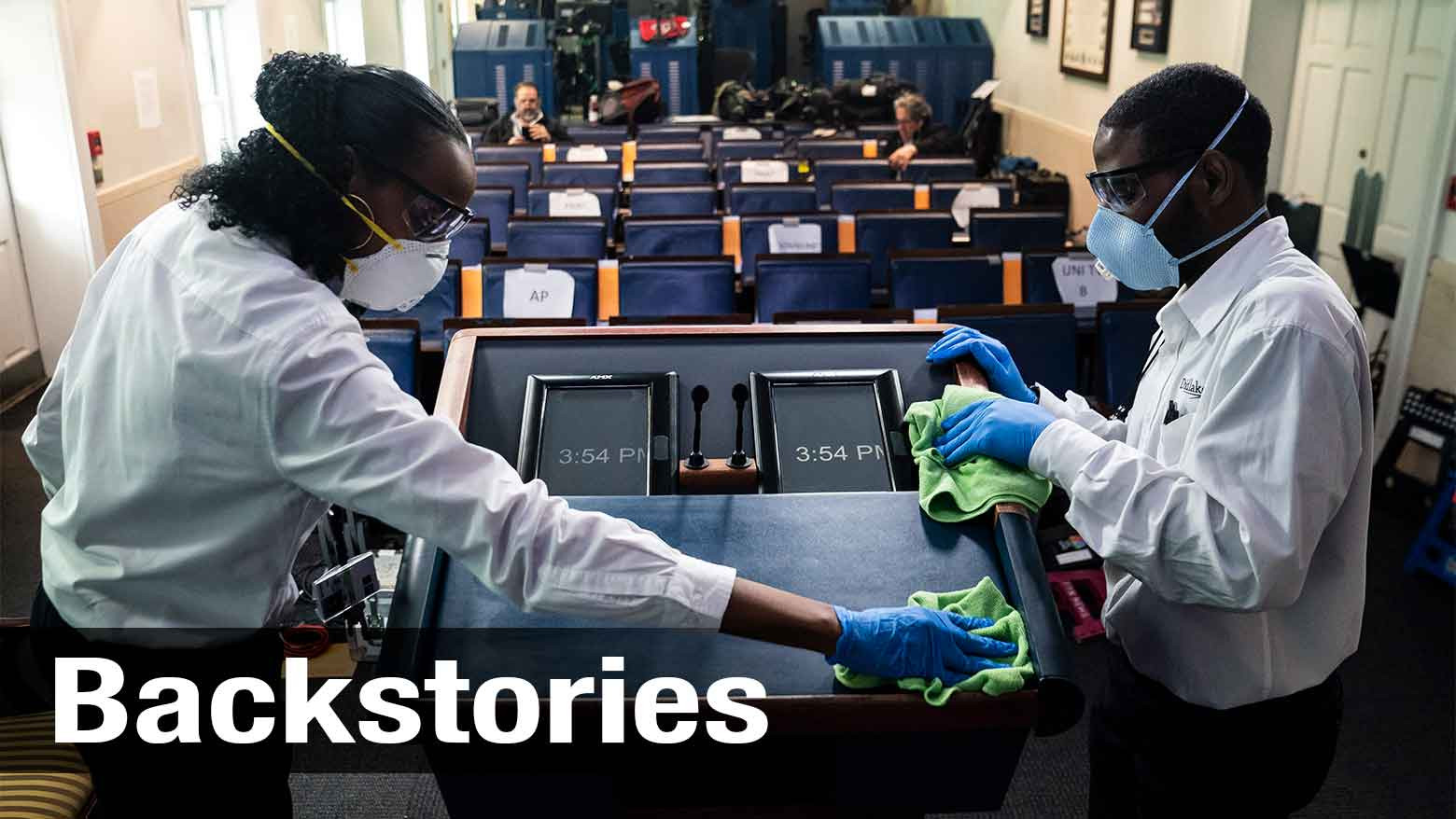When Donald Trump first ran for the US presidency, his stadium rallies were the lifeblood of the campaign. But in 2020, with the number of coronavirus cases breaking the 1 million mark and large gatherings no longer possible due to nationwide social distancing guidelines, his re-election bid looks very different.
In place of his rallies, Trump now has coronavirus press briefings. An average of 8.5 million housebound Americans tune into the near-daily briefings, and what they see often has some of the trappings of a campaign event. The president has played video montages touting his response to the coronavirus and, on multiple occasions, reminded Americans that the economy was in good shape before the pandemic hit.
Gina Loudon, who serves on the Trump 2020 Media Advisory Board, says the President’s briefings have been about transparency and his willingness to communicate with the American people in the midst of a crisis.
“President Trump holds the briefings to reassure Americans and he has been a source of true strength and inspiration during this difficult time”, she says.
But substituting rallies with press briefings means substituting a crowd of rabid supporters for a throng of probing journalists, and his annoyance is often palpable.
“We’ve seen it irritates him quite often, especially when they question him on things like testing numbers,” says Mitchell McKinney, who teaches courses in political communication at the University of Missouri. “This becomes a storyline for the news: An agitated and defensive president making pronouncements that then have to be walked by his staff.”
Indeed, the press briefings, originally a way for viewers to get the latest updates on the coronavirus outbreak, have turned into a heated battle between the president and reporters. Multiple reports say that this is why he has cut back on the frequency of the briefings recently.
“I think early on, Americans were looking to the White House and the president’s science advisors for answers,” notes McKinney. “Over time, we've seen the president push those science advisors to the side and when that happens, we then see this sparring.”

Trump’s opponent this November has also been forced to adjust his campaign strategy. Joe Biden has been holding online town halls from the basement of his Delaware home. He has also debuted a podcast called ‘Here’s the Deal.’ But while it has featured high-profile political guests, including Senator Amy Klobuchar and Michigan Governor Gretchen Whitmer, it has failed to break the top 100 on the Apple podcast chart.
The campaign recently began a new digital series called ‘Sincerely Joe Biden’ on medium.com. It features letters written by supporters, and the Vice President’s response. But that, too, has struggled for attention in a media landscape almost monopolized by the Trump campaign. Former Obama campaign strategists have urged Biden to step up his digital game as his rival dominates social media and the major news networks.
But having Trump get most of the spotlight might not be so bad for the former vice president, says McKinney. “Biden has a tendency for gaffes, so if the President takes center stage and makes misstatements and spars with the media, this might do some damage perhaps to Trump’s public standing,” he says. “That by default, may make people see Joe Biden as the preferable candidate.”

But there are signs that Biden may be losing the people who ought to be firmly in his camp. Neil Ferguson, who supported Senator Klobuchar in the Democratic primaries, has been paying close attention to both candidates. Although he didn’t vote for Trump in 2016, Ferguson has changed his mind about the President.
“It’s disappointing to me that this situation has to be a political football and Biden is saying ‘President Trump is screwing everything up and doing everything wrong so I should be president’,” says the 68-year-old. “He should instead be asking Trump how he can help him at this very desperate time in American history so that we come out of this as best as we can.” He acknowledges that the coronavirus press briefings can get awkward, but says he admires how Trump has been handling the situation. Ferguson plans to vote for the incumbent in the upcoming election.

